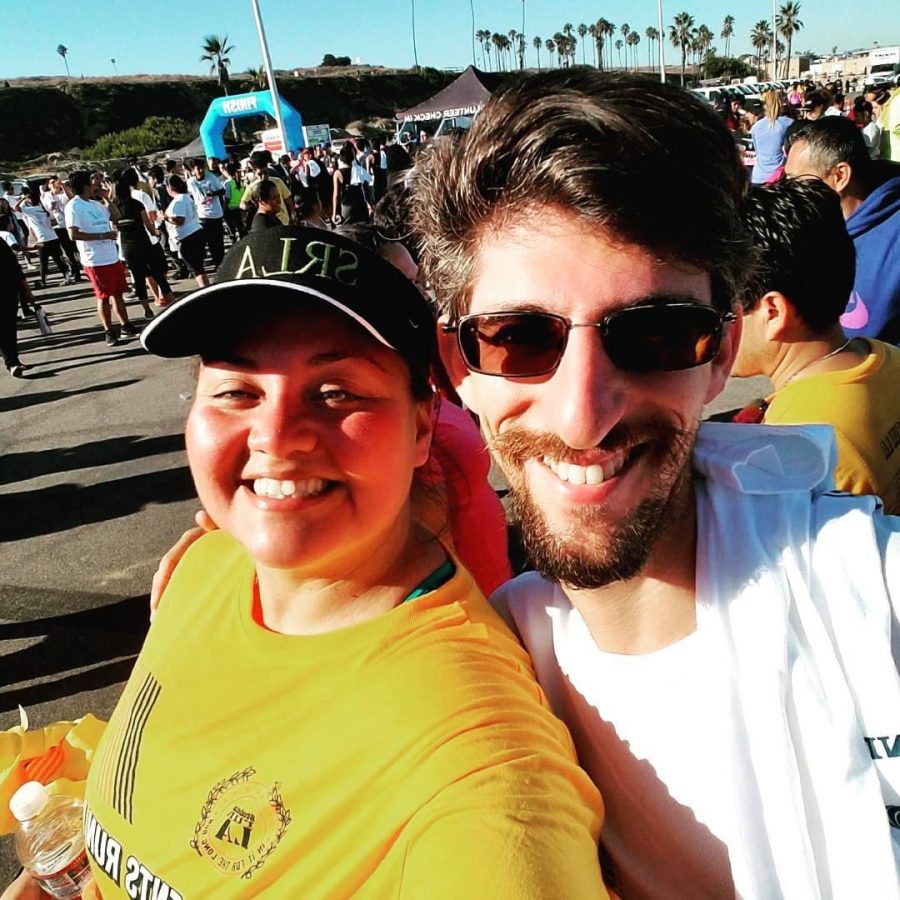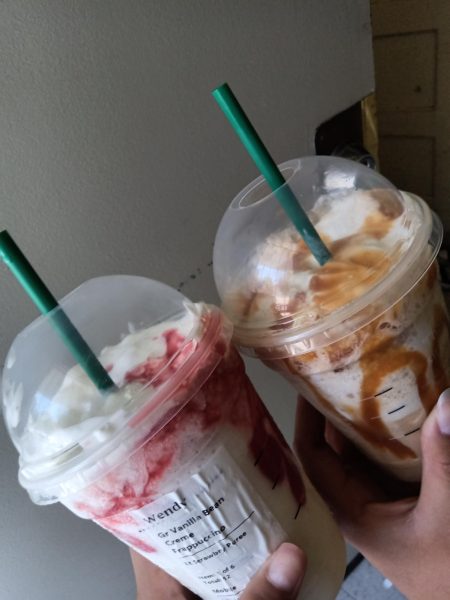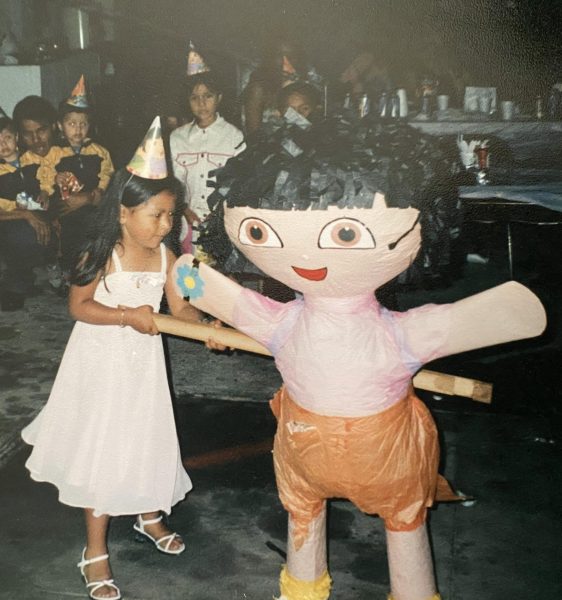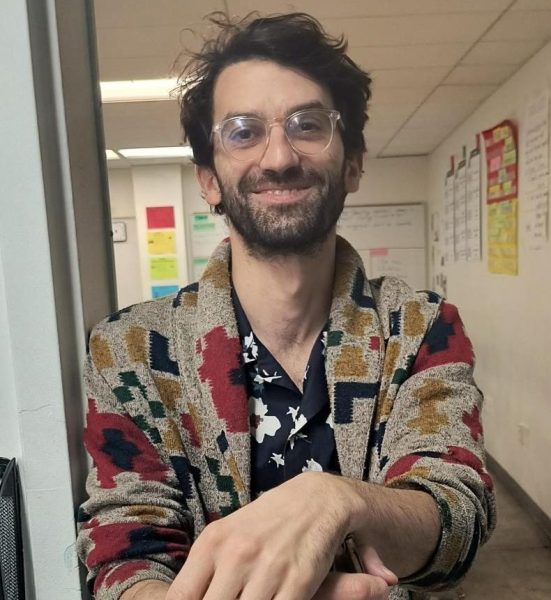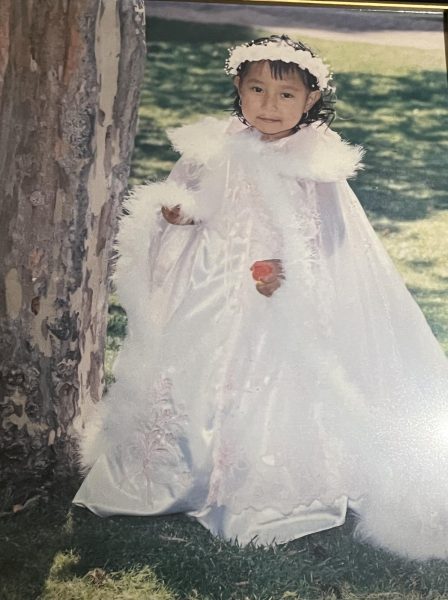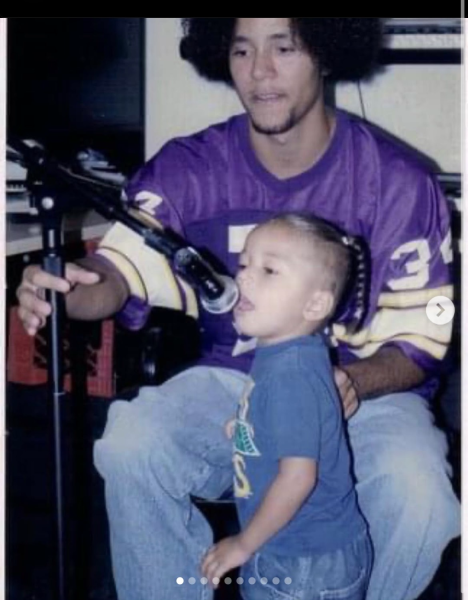“I think that comes with age. Being younger, you just kind of push through things and I feel like as I get older I’m a little bit more aware of how to take care of myself.”
Carl Finer is a teacher at AJMS who volunteers to help out with srla. He is a runner who started when he was in middle school and kept running from high school to college. SRLA is a program that helps students prepare for a marathon. Kids run and run 3 times a week to get prepared for the marathon. Carl Finer uses his time to help train us kids. He dedicates time to us to keep on running and not give up.
Today we talk about some of Carl Finer’s problems when he was running and what encouraged him during his runs. We talked about things that happened to him while running and overall his experiences while running.
Transcript
Matthew Gonzalez: What encouraged you to start doing SRLA?
Carl Finer: SRLA? Like starting with SRLA? Um-
MG: Yeah.
CF: Like, um, okay so uh, I actually started all the way back in 2005 with SRLA, uh, and that was my first teaching job at LA Academy Middle School. It’s not too far from here [inaudible] so it was my second year there and there was another teacher at the school, Ms. McClain, who knew I was a runner and came up to me and was like, “Hey, you know, we’re starting this team called Students Run LA and we’re gonna train with students for the LA Marathon and we know that you run.”
“I know that you run so do you wanna help us with this?” and I thought “Wait what? Like ki-kids run like the mara- like the mara- what the marathon. [laugh] Like you mean they run like a mile at a time and then some kind of event where they finish these like wo- “No, like the program, we build up and they run the whole marathon.” And I was like “That’s the craziest thing I’ve ever heard!” [laughs]
But I was like, “Okay I’ll help out with that” and so uh it was the first year they had a team in LA Academy. And so me and a few other teachers helped out with Ms. McClain that first year. So that’s kind of how I got started with, that’s how I got started with SRLA originally.
MG: So before you were a runner? [Inaudible]
CF: Like before SRLA?
MG: Yeah.
CF: Okay, yeah I actually started running in middle school in seventh grade.
MG: Oh okay.
CF: Growing up I played baseball. It was my first sport and I played a lot of basketball. Um, but I got into running in middle school and then really in high school. I actually played baseball up through my sophomore year of high school. But I really focused on, uh, I got really into running in high school. So I ran cross country for my high school and then when I went off to college. I didn’t run for the college team. Like um cause, they had a really good nationally ranked team. Maybe I could have ran, maybe for a small college but I went to like a big school that had a very competitive program.
But I did keep running and my freshmen year of college I I set a goal. I wanted to run a marathon and so I my freshman year of college was when I ran my first marathon, the Columbus Marathon, with one of my former high school coaches and one of my teammates and then I did another one in college. I did the Chicago Marathon my sophomore year so, um, I ran through college and then I kind of, I don’t want to say I stopped but I wasn’t really running very much until I got pulled into SRLA.
MG: Oh, for your first marathon what encouraged you to keep on going and not give up? You know?
CF: Not giving up, uh, I mean I didn’t really keep on going, I walked most of the last ten miles. [laugh] Um, so my first marathon was in Columbus, Ohio with my coach and my teammate and and, you know, I pretty much trained on my own. I didn’t know what I was doing that first time around and I didn’t really have like a training group or anything. I was just trying to run on my own where I went to college in Syracuse and and trying do some long runs on the weekends. I don’t think I got up past like 15 or 16 miles. So when I went to Columbus to run I said, “Okay I’m going to try and keep the goal, the goal is to keep up with with my teammate and my coach.
They knew what time they wanted to run and I thought I could keep up with them and I did for the first 13 miles and then my legs started to cramp up. I fell off and by mile 16 I completely cramped up and ended up basically having to drag myself the last ten miles, um, to the end, uh cause uh I finished, I’m glad I finished.
My dad was terrified because I told him what time I thought I was gonna finish and then an hour goes by, an hour and a half goes by, I haven’t finished yet and this is before chip timing where you can look on your phone or a computer, like this is before all that so he didn’t know what happened to me-
MG: Oh-
CF: He thought like maybe I was in the hospital. He didn’t know anything about running the marathon, my parents didn’t know anything about that so, like um, he thought something seriously happened. He was like really distraught but I was just walking [laughs] and when it was over I fell but yeah that’s how I finished my first one, back in 2001.
MG: While running have you ever had any injuries like-
CF: I’ve had lots of injuries.
MG: Any serious injuries?
CF: Its almost like “When have I not been injured?”
MG: Oh.
CF: Its almost like [laughs] um I mean, I guess I wouldn’t say serious in terms of like beyond running related but definitely seriously enough where I stopped running for six months, like serious as far as sports injuries.
I don’t wanna diminish like how painful and frustrating and depressing it is to not be able to do something you love and want to do and have it hurt to do it and not feel like its getting better. Like, that’s awful but I also want to separate that out – its not like I broke an arm. Do you know what I’m saying? Like um, but yeah I have had I’ve had like, um, I think I’ve had two occasions. There was one where I was training for the marathon, one with SRLA and uh I didn’t do it because of an injury um I [inaudible] actually like stopped running for an entire year and went to physical therapy this is back in 2015? 16?
Which is like, yeah been uh cause of uh um, I think I had injuries that I had not taken care of for a long time I just pushed through them, I didn’t, you know, I kinda of did rehab but then came back too soon then stopped. I didn’t consistently do all things I needed to do to prevent another injury so you just kind of like get like, “If you don’t fix it it doesn’t fix itself.”
Um so I remember one year the year I had trained so hard for the marathon. That was the year like I took it really seriously. I was running not just with SRLA but I had a track club I was training with. I was running like races on Saturdays and Sundays. I was running six days a week I was doing like [inaudible] Santa Monica College, like um, I was training with some pretty serious people cause my goal was to qualify for the Boston Marathon and you basically have to run about seven minutes per per mile for the entire thing to qualify. I really like I put in the work and I thought I was in shape to do that, like pretty close, like I thought I was in shape to run maybe like a 3:05 marathon, pretty fast.
About two weeks before the marathon my right hip like swelled up like a grapefruit. I like had trouble pulling my shorts over it, like it swelled up it was like having a softball in my hip. [laughs] Yeah, uh, like two weeks before the marathon and I went, I remember going to track practice and I couldn’t even run two laps around the track without it hurting so bad. I couldn’t put any weight on it and I was like pretty despondent, like I’ve been training this whole time and what do I do? I went and got a massage and I was like icing it and wearing like my cycling shorts to try and put some pressure underneath while at work [inaudible] and I talked to a physical therapist in my track club and she basically was like, “Well you can’t make it any worse.” [laughs] She said “Run to tolerance,” was her words. Basically run till the pain is too much where you can’t and then you need to get treatment on this after the marathon. So I went out, gave it a shot and said, “Alright, you know I’ma try and hang on for as long as I can with my training partners and we’ll see what happens.”
And I hung on for about 18 miles. And then it got too much, then I kind of fell off with jogging like, I kinda had to walk-jog. I still ran 3:19 which was my fastest LA marathon since I’ve been doing it with SRLA even with all that happened. But then I went to this running chiropractor who would work on it and give me exercises to do. But I didn’t really stick with the- I just needed to stop running for like a few months and like go back and kinda start all over again and I didn’t really do that and then I think the next year is the year I did the uh, I just remember running the marathon and being like, “I don’t want do this anymore.”
Like it’s not fun anymore, it hurts. Like my body doesn’t feel right, my hip doesn’t feel strong. And then I was pretty burned out, honestly, and I pretty much stopped and then I had to shut it down. That’s actually when I stopped and Mr. Lo took over. I just had to shut it down for a while and I didn’t run for almost a year and went into rehab and this chiropractor, I kinda had to start over again and like learn how to run. I don’t wanna say learn how to run but like I had to change my mindset and kinda rebuild and strengthen up again and and approach it differently and now I am a lot more aware of taking care of injuries and doing the stretches and doing the drills.
I don’t run as much as I used to I used to, like six days a week. I take like al-now its like maybe I run every other day. It’s a little different [laughs] for me now and having done it for so long it’s a little more sustainable. Like I want it to be something I can continue to do.
MG: After your hip injury what encouraged you to keep on going after like all that pain?
CF: All that, like finish that marathon or to like start up running again?
MG: Yeah to start up running again.
CF: Um I mean i missed it. It’s been a big part of my life since I was in middle school, like the routine, feeling fit, being around students and training, things to having to focus on thing and signing up to train for. And a big part of my sense of community are my friends that I run with or the clubs and getting out and doing something like that and being healthy. I do like to bike and swim but for me there isn’t really a substitute for running. Um you know, it’s something I missed after a while.
MG: Oh,have you had any regrets while running?
CF: That’s a good question. I mean, not really. I mean the one, I guess the one I got for a while was, I did kind of get called on it at my adult track club. When I was training pretty seriously and they like, when I hadn’t qualified for Boston, I didn’t feel like I ran my best time and then someone was like, “Have you really put in the work? Have you really really committed to this to put in the work?”
And then I thought about it, “You know they’re right.” And that’s when, I like, I really am gonna do everything to do to see if I can actually run my fastest and what my best time is and try and qualify. That’s when I upped my mileage and was running with both SRLA and my club team. I really did put in the work. That’s also the year I got injured because in hindsight, I mean I know now there was other work I needed to be doing and I didn’t really know that back then the way I know now. I guess I don’t really have an regrets. I feel like i gave it my- like I didn’t get the results I wanted but I know I put all the effort to see what I can do.
If I could do it again, if I was a little smarter, I would you know, um take some of the steps to not push through the injuries to take care of myself a little bit better I know that now and I didn’t really understand that the same way then. I think that comes with age too, you know. Sort of like being younger you just kind of like push through things and I feel like as I get older I’m a little bit more aware of how to take care of myself.
About the Contributor
